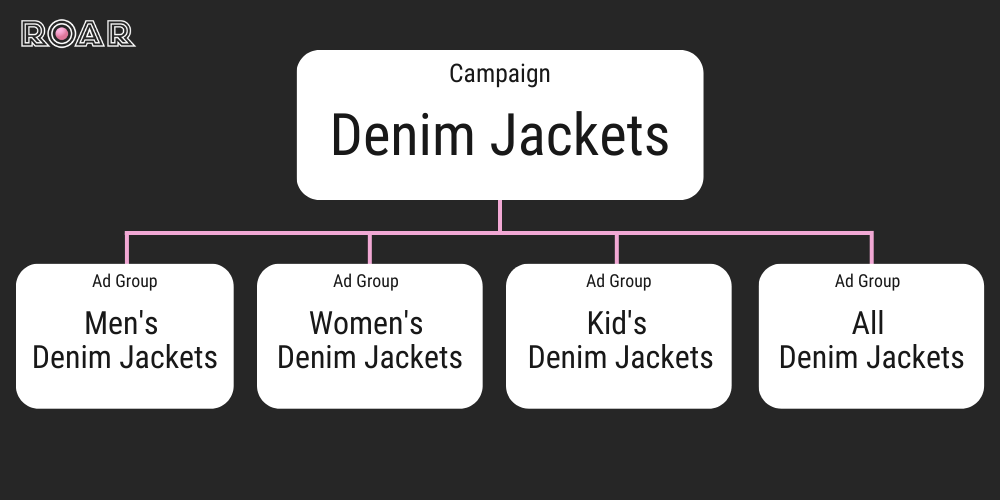
-
ROAR
- 4 Min Read
- Blog, PPC
PPC Optimisation Techniques: A Beginners Guide
Starting PPC Ads for your business is relatively easy if you follow the correct steps. Building the campaign further and learning how to optimise PPC campaigns for the right audience at the right moment in the buying cycle is a little harder.
Why PPC?
PPC Ads are a cost-effective way of moving your business into paid search.
PPC or pay-per-click is a payment method for advertisers so that you only pay once a user has clicked on your ad and gone to the landing page or website. For businesses, this means none of your budget is wasted on users who view your ad but aren’t interested.
To learn more about PPC and PPC agencies, check out our FREE downloadable guide – Why Hire a PPC Agency | The Ultimate Guide
How to Optimise PPC Campaigns
Once your campaigns are built and running, you may see areas of the campaign that are performing better than others. To counteract this, understanding how to optimise PPC campaigns is vital—helping you keep up performance, conversions and impressions.
Account Structure
Understanding how to optimise your PPC campaigns is significantly easier if your ads are organised logically so that each ad within the campaign is optimised for the same keyword and audience.
Ideally, you should have a few campaigns focused on each product/service, location and other key factors affecting your business goals. If you’re struggling to structure your campaigns try using your website’s structure.
For instance, if you owned a clothing company and wanted an add campaign focus on denim jackets, you could have:
Denim Jackets – Campaign
Men’s Denim Jackets – Ad Group
Women’s Denim Jackets – Ad Group
Kid’s Denim Jackets – Ad Group
All Denim Jackets – Ad Group
Keywords (Negatives and Pausing)
Within any ad platform, keywords are essential. They link your ads to a user’s search, but there can be too many keywords. Google suggests having no more than 30 keywords per ad group, and then two or three ads within that include the keywords within the text.
Negative Keywords
Negative keywords allow you to select keywords you do not want your ads to appear for. You can have negative keywords at the campaign and ad group levels.
A campaign-level negative keyword means that none of your ads within the campaign will show for the selected keyword.
An ad group level keyword means that ads within that ad group won’t show for the keyword selected, but ads in a different ad group can still show for that keyword.
To start with your negative keywords list, click on the Search Terms report within a search campaign. The search terms report is a list of search terms that a significant number of people have used, that resulted in your ads being shown. Alongside the list of search terms, you can include the keywords column that highlights the keyword which triggered your ad for that search.
Taking on PPC as a beginner can be challenging, see our blog, what is PPC campaign management?
Pausing Keywords
When deciding how to optimise PPC campaigns, start with what you already have before adding anything. Review your keywords and see which ones are underperforming within their ad group. You can pause keywords so they’re still part of your ad group in the future, but the keyword won’t get any ad traffic right now.
There are a few reasons why keywords are underperforming:
- Keyword Bid – If your bid for a competitive keyword is too long, your ads don’t stand a chance of being shown before competitors
- Keyword Volume – Are there enough people actively searching for your keyword? Even if you have 50 volumes when you initially set up the campaign, keyword volumes vary over time.
- Too broad – If a keyword currently sits in a broad match and receives lots of impressions, but no clicks/conversions, then move it to phrase or exact match to narrow down users.
- Too niche – On the flip side, if a keyword sits in the exact match but has really low traffic but has a solid CTR or conversion rate, moving the keyword to a phrase or broad match may see you reach more traffic and maintain that CTR.
Ad copy
Ad copy needs to be snappy and to the point, focusing on getting users from search results pages to your site or landing page.
One key thing to focus on is ensuring that the keyword you select to go within an ad group is relevant to your ad content and the rest of the group. Having one rogue keyword within a group can through it off.
Another strategy is ad variations. Creating slightly different versions of ads with simple tweaks can help you see which terminology or phrase performs and converts and which doesn’t.
Demographics
In terms of how to optimise PPC campaigns, the people seeing the ads are always a great place to start. Once your campaigns have been running and gathering data, you can use the data to narrow down exactly who sees your ads.
Whether by location, age, or gender, use the data to ensure that you maintain the people converting within your potential customers.
Running PPC campaigns yourself isn’t easy. Speak to one of our specialists today to see how ROAR help you dominate the search engines.






